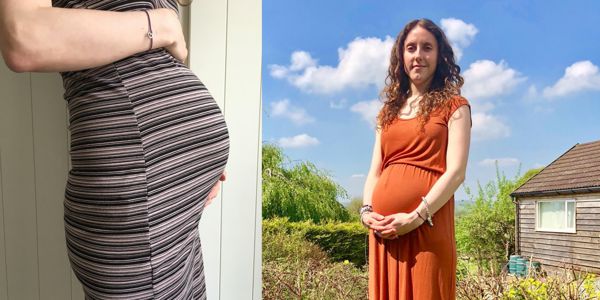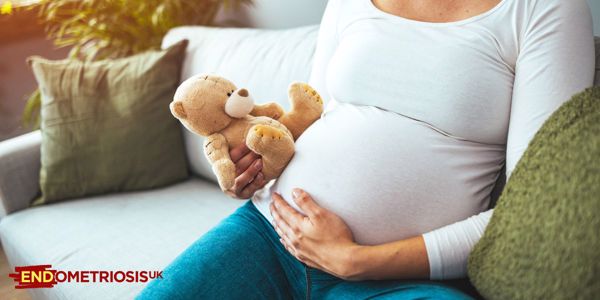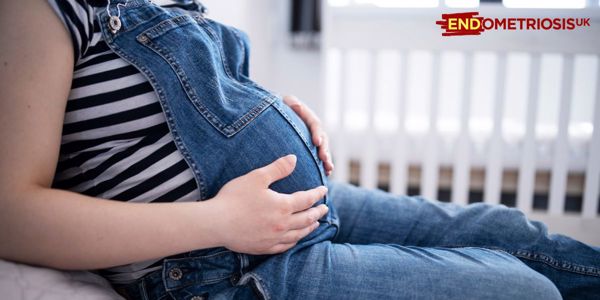March is endometriosis awareness month. Endometriosis is estimated to affect around 1 in 10 women during their reproductive years (that’s about 2 million women in the U.K.)
The aim of this post is to increase the visibility and understanding of endometriosis.
What Is Endometriosis?
Endometriosis is a long-term condition where tissue, similar to the tissue that lines the inside of the uterus (endometrium) implants itself outside of the uterus; in places such as the ovaries and fallopian tubes.
Endometriosis can have a severe impact on a person's overall physical health, well-being and their day to day life, causing pain, heavy periods and infertility.
Endometriosis can affect women of any age, including teenagers, and is one of the most common gynaecological diseases that needs treatment.
There is currently no known cure for endometriosis, however, there are treatments available that can help.
What Causes Endometriosis?
The exact cause of endometriosis is still unknown, but there are thought to be several different factors at play.
For many women during their period, some of the inner lining of their womb flows backwards through their fallopian tubes, into their abdomen. Usually, the body will clear the tissue, but for women with endometriosis, this tissue attaches itself to the organs in the pelvic organs, abdominal organs or the wall of the abdomen.
Common Endometriosis Symptoms
Symptoms of endometriosis can vary from person to person. Some women may not have any noticeable symptoms of endometriosis, while others may be badly affected by the disease.
Here are some common symptoms of endometriosis:
- Pain during and/or after sex
- Pelvic pain - pain in your lower tummy or back which is usually worse during your period
- Feeling sick/being sick
- Constipation
- Diarrhoea
- Blood in your urine or poo during your period
- Pain when urinating or pooing during your period
- Difficulty getting pregnant
- Heavy periods
- Painful periods - pain that stops you from doing your normal everyday activities.
How Does Endometriosis Impact Fertility?
One of the main complications associated with endometriosis is difficulty getting pregnant, as well as it being a common cause of infertility (not being able to get pregnant at all) Between 30-50% of people with endometriosis may experience infertility.
Infertility can happen if the endometrial tissue, as mentioned above, implants itself around the fallopian tubes or ovaries - where it causes inflammation and scar tissue. The scar tissue (adhesions) can distort the pelvic anatomy, interfering with the different stages of pregnancy (Adhesions are more common in moderate-severe cases of endometriosis).
Additionally, ovarian cysts caused by endometriosis can cause damage to the ovary, which could affect ovarian function and the supply of eggs.
Endometriosis studies have found that it can also alter the immune system, change hormonal environments around the eggs, altering the quality. And it can inhibit the implantation of an embryo.
How Often Can People Get Spontaneously Pregnant With Endometriosis?
Many women who have endometriosis will be able to fall pregnant naturally, without the need for medical intervention. However, those with moderate-severe grade endometriosis have a reduced chance of conception due to the inflammation and adhesions (scar tissue) caused by endometriosis.
60 - 70% of those who have endometriosis will fall pregnant spontaneously (without the need for medical intervention) when put into context, the numbers are as follows (Out of 100 people):
- Out of 100 women without endometriosis who start trying for a baby, after one year, 84 will be pregnant.
- Out of 100 women with minimal - mild endometriosis who start trying for a baby, after one year, 75 will be pregnant.
- Out of 100 women with moderate endometriosis who start trying for a baby, after one year, 50 will be pregnant.
- Out of 100 women with severe endometriosis who start trying for a baby, after one year, 25 will be pregnant.
What Risks Are Associated in a Pregnancy With Endometriosis?
As mentioned above, endometriosis is known to alter a person's physiology, which means that it could interfere with and affect the different stages in pregnancy.
A meta-analysis study found that people with endometriosis are at a higher risk of miscarriage, pre-term labour, placenta pre-via and caesarean delivery.
Alongside this endometriosis was found to have been associated with infants being born smaller than usual for their gestational age. They found no association between endometriosis and preeclampsia or gestational hypertension.
Is There Any Treatment for Endometriosis?
While there is no current cure for endometriosis, there are treatments that can help ease the symptoms. Treatments include:
- Painkillers - things like paracetamol, ibuprofen, or stronger prescribed medication such as naproxen or pregabalin
- Hormone medication - GnRH (gonadotrophin-releasing hormone) analogues
- Contraceptives - the contraceptive patch, the combined pill, IUS (intrauterine systems)
- Surgery - where patches of endometriosis tissue (adhesions) are cut away
- Operations to remove parts or complete organs that are affected by endometriosis e.g, hysterectomy
It is important to speak to your GP as they will be able to discuss all of your symptoms and treatment options with you.
Conception help
According to the NHS website, a referral for assisted conception can be made if a person is diagnosed with infertility, or if all alternative treatments and lifestyle changes have been explored and infertility is still unexplained after 24 months.
Providing a woman or a couple meets the eligibility criteria set out for infertility treatment, the NHS will fund up to 12 unstimulated IUI (intrauterine insemination) cycles.
They will also fund one full IVF (in vitro fertilisation)/ICSI (intra-cytoplasmic sperm injection) cycle for eligible patients.







